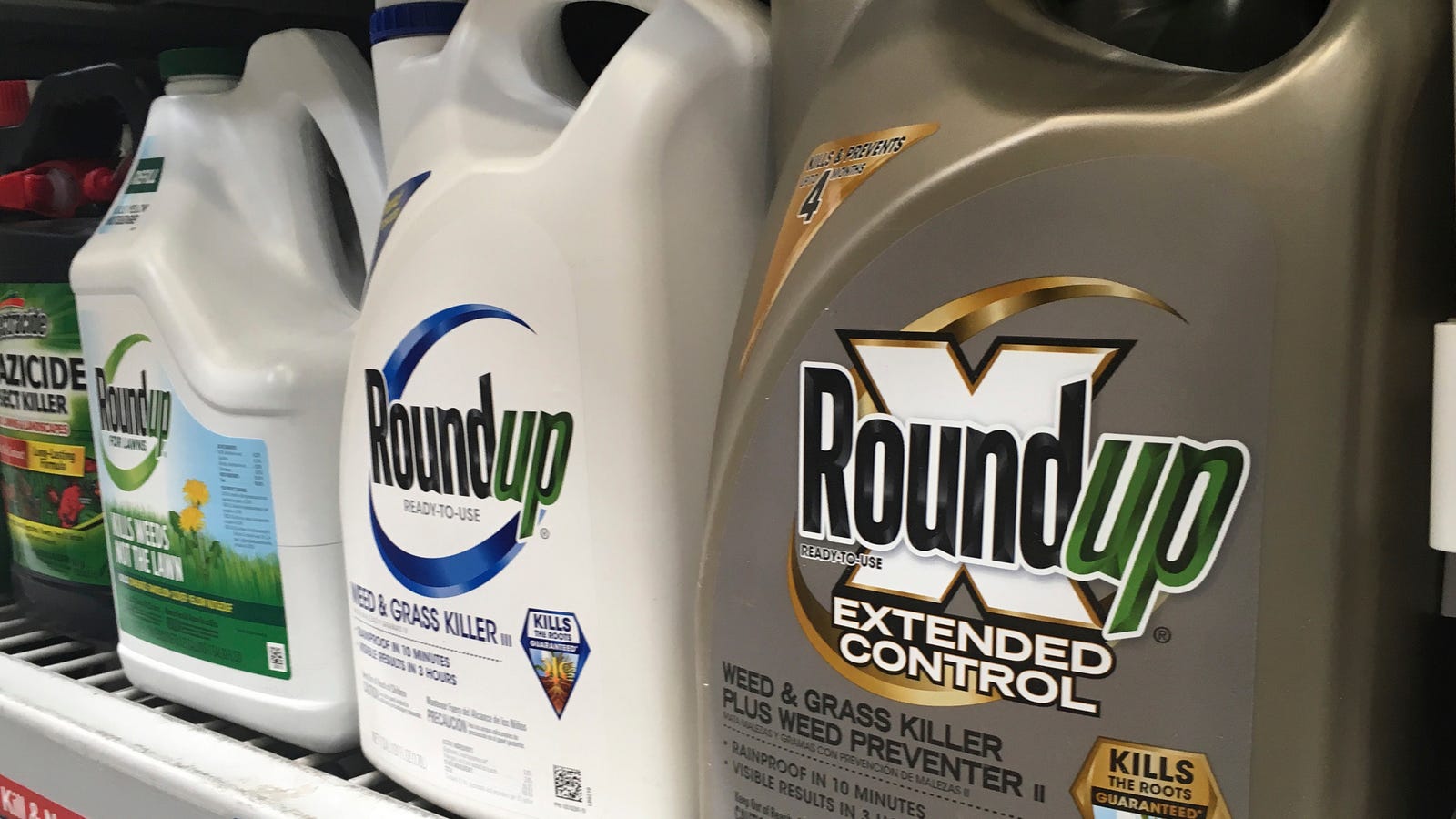https://earther.gizmodo.com/judge-slashes-payout-in-roundup-lawsuit-but-calls-mons-1836397910

A federal judge in one of the lawsuits between pharmaceutical giant AG Bayer, which bought agrochemical giant Monsanto in 2018, and plaintiffs who claim its Roundup herbicide caused their cancer has slashed an $80 million payout, Reuters reported on Monday.
According to Reuters, U.S. District Judge Vince Chhabria in San Francisco found that while evidence supports a $5.27 million in compensatory damages owed by Bayer to Edwin Hardeman, punitive damages should be reduced from $75 million to $20 million. Chhabria wrote that Monsanto “deserves to be punished” for ignoring safety concerns and its conduct was “reprehensible.” But he also found the ratio of punitive to compensatory damages was too high, “particularly in the absence of evidence showing intentional concealment of a known or obvious safety risk.”
The Wall Street Journal reported that while Chhabria found mixed scientific evidence as to whether Roundup exposure is a risk factor for non-Hodgkin lymphoma, he wrote “the evidence at trial painted the picture of a company focused on attacking or undermining the people who raised concerns.” The paper noted that while Bayer has lost two additional cases involving Roundup (in one case involving a jury award of over $2 billion) and is facing thousands of others, it has had success limiting payouts:
Bayer similarly succeeded in having a trial judge slash the first Roundup jury verdict in the case of a San Francisco Bay Area groundskeeper, to $78.5 million from $289.2 million. The company is now appealing that slimmed-down amount. Bayer is asking a judge to reduce a third jury verdict, also in Northern California, of more than $2 billion awarded in May to a couple who used Roundup at their home.
In Mr. Hardeman’s trial, unlike in the other two, jurors first weighed whether science showed a link between Roundup and his non-Hodgkin lymphoma before turning to the question of Monsanto’s liability… The trio of jury verdicts and 13,000 additional claims tying Roundup to cancer have sent German-based Bayer into turmoil. Its shares have lost over 30% in value over the past year as investors worry the legal battle could take years to resolve and end up costing Bayer billions.
According to Reuters, Chhabria emphasized that he was required to reduce the punitive damages due to precedent set by the Supreme Court, but he felt the jury’s original award was reasonable.
The World Health Organization’s International Agency for Research on Cancer (IARC) deemed Roundup’s key ingredient, glyphosate, a “probable carcinogen” in 2015—a stance supported by a study this year finding glyphosate exposure was associated with significantly higher risk of developing non-Hodgkin lymphoma. Hardeman says that he used the herbicide on a large property north of San Francisco for over two decades.
Monsanto insists that Roundup is safe, but court documents have shown it had a hand in overseeing supposedly “independent” evaluations of its safety. The Environmental Protection Agency’s official position is also that Roundup is safe when used according to label instructions, though an EPA official formerly responsible for evaluating its safety has faced allegations of an suspiciously cozy relationship with Monsanto.
That said, there is disagreement on how much of a risk Roundup truly poses. University of California, Riverside toxicologist David Eastmond, author of a glyphosate review for the World Health Organization’s Joint FAO/WHO Meeting on Pesticide Residues, told NPR earlier this year that the IARC had simply found that the chemical could cause cancer without evaluating how likely it is to pose a risk to the public.
“From my reading of things, if glyphosate causes cancer, it’s a pretty weak carcinogen, which means that you’re going to need pretty high doses in order to cause it,” Eastmond told NPR, adding that he had based his conclusions in part on a large number of Monsanto-funded studies not considered by the IARC.
“We are pleased that the judge denied Monsanto’s motion to throw out the verdict, and recognized that Monsanto deserved to be punished,” Jennifer Moore, a member of Hardeman’s legal team, told Reuters. “We disagree with any reduction in the jury verdict.”
Backlash against Roundup is building elsewhere as well. Austrian legislators recently approved a total ban on glyphosate, positioning it to be the first member state of the European Union to do so and creating the possibility of other nations following suit.
via Gizmodo https://gizmodo.com
July 15, 2019 at 10:48PM
